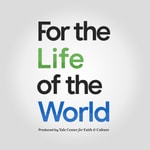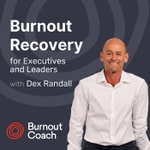For the Life of the World / Yale Center for Faith & Culture – Détails, épisodes et analyse
Détails du podcast
Informations techniques et générales issues du flux RSS du podcast.

For the Life of the World / Yale Center for Faith & Culture
Miroslav Volf, Matthew Croasmun, Ryan McAnnally-Linz, Drew Collins, Evan Rosa
Fréquence : 1 épisode/9j. Total Éps: 219

Classements récents
Dernières positions dans les classements Apple Podcasts et Spotify.
Apple Podcasts
🇩🇪 Allemagne - christianity
14/07/2025#68🇩🇪 Allemagne - christianity
13/04/2025#96🇫🇷 France - christianity
19/11/2024#78🇫🇷 France - christianity
18/11/2024#60🇩🇪 Allemagne - christianity
07/09/2024#85
Spotify
Aucun classement récent disponible
Liens partagés entre épisodes et podcasts
Liens présents dans les descriptions d'épisodes et autres podcasts les utilisant également.
See all- https://988lifeline.org/
1208 partages
- https://faith.yale.edu/give
317 partages
- https://faith.yale.edu/about
298 partages
Qualité et score du flux RSS
Évaluation technique de la qualité et de la structure du flux RSS.
See allScore global : 68%
Historique des publications
Répartition mensuelle des publications d'épisodes au fil des années.
How to Read Genesis / Marilynne Robinson & Miroslav Volf
Épisode 193
mercredi 28 août 2024 • Durée 53:40
“The whole of human existence is like some sweet parable told in the most improbable place and circumstances. … God values our humanity. … One of the things that's fascinating about the Hebrew Bible is that it declared and was loyal to the fact that God is good and creation is good.”
Novelist and essayist Marilynne Robinson joins Miroslav Volf to discuss her latest book, Reading Genesis. Together they discuss why she took up this project of biblical commentary and what scripture and theological reflection means to her; how she thinks of Genesis as a theodicy (or a defense against the problem of evil and suffering); the grace of God; the question of humanity’s goodness; how to understand the flood; the relationship between divine providence and working for moral progress; and much more.
About Marilynne Robinson
Marilynne Robinson is an award-winning American novelist and essayist. Her fictional and non-fictional work includes recurring themes of Christian spirituality and American political life. In a 2008 interview with the Paris Review, Robinson said, "Religion is a framing mechanism. It is a language of orientation that presents itself as a series of questions. It talks about the arc of life and the quality of experience in ways that I've found fruitful to think about."
Her novels include: Housekeeping (1980, Hemingway Foundation/Pen Award, Pulitzer Prize finalist), Gilead (2004, Pulitzer Prize), Home (2008, National Book Award Finalist), Lila (2014, National Book Award Finalist), and most recently, Jack (2020). Robinson's non-fiction works include Mother Country: Britain, the Welfare State, and Nuclear Pollution (1989), The Death of Adam: Essays on Modern Thought (1998), Absence of Mind: The Dispelling of Inwardness from the Modern Myth of the Self (2010), When I was a Child I Read Books: Essays (2012), The Givenness of Things: Essays (2015), and What Are We Doing Here?: Essays (2018). Her latest book is Reading Genesis (2024).
Marilynne Robinson received a B.A., magna cum laude, from Brown University in 1966 and a Ph.D. in English from the University of Washington in 1977. She has served as a writer-in-residence or visiting professor at a variety universities, included Yale Divinity School in Spring 2020. She currently teaches at the Iowa Writers' Workshop at the University of Iowa. She has served as a deacon for the Congregational United Church of Christ. Robinson was born and raised in Sandpoint, Idaho and now lives in Iowa City.
Show Notes
- Get your copy of Reading Genesis by Marilynne Robinson
- Marilynne Robinson’s New York Times article, “What Literature Owes the Bible” (2011)
- Reading Genesis as the singular ancient literature that it is
- The Bible (and Genesis) as theodicy
- How Calvin and Luther influenced Robinson’s approach to Genesis
- The benefit of reading Genesis as a whole
- The story of Joseph
- The fractal nature of the bible
- Unsparing, honest descriptions of the characters
- “I think that the fact that they are recognizably flawed creatures is, what that reflects is the grace of God. He is enthralled by these people that must have been a fairly continuous disappointment, you know? We have to understand humankind better, I think, in order to understand what overplus there is in a human being that God loves them despite their being so human.”
- “An amazing little theater of domestic dysfunction.”
- Abraham and Isaac: “Poor Isaac … or he could just be a plain old disappointing child.”
- “The Bible is a theodicy.”
- God’s goodness, and a defense of God
- God’s value of humanity and the conservation of the human self
- “God stands by creation.”
- Humanism in Genesis
- “Humanity sinks so deep into evil. that they become near incarnations of evil.”
- Genesis 6: “Every inclination of the thoughts of their hearts was Only evil and continually.”
- Total depravity and the bleak view of humanity
- Noah and the Flood
- “… there's a kind of a strange lawlessness of Genesis.”
- “When God remakes the world after Noah, after the flood, he does not change human beings. He gives them exactly the same blessings and instructions that he did originally, which is simply another statement of his very deeply tested loyalty to us as we are.”
- “Finding a humane way to deal with the inhumanity of human beings.”
- Genesis 8: “Because human beings are evil, I will never destroy them.”
- Grace as a condition of possibility for all life
- The similarities between Hebrew Bible as a philosophic text, drawing influences from cultures around them
- “what is a greater question of theodicy than the fact that populations are wiped off the face of the earth every so often—it must have been so common in the ancient world with plagues and wars and all the rest of it.”
- “Every human, every thought, all the time: evil.”
- “Genesis is a preparation for Exodus because the solution to human wickedness, which nevertheless does not violate human nature, is law.”
- What is the moral purpose of humanity?
- The roaring cosmos and modern atheisms: Schopenhauer and Nietzsche on moral purpose is gone, humanity is just a little boat amidst a storm
- “The whole of human existence is like some sweet parable told in the most improbable place and circumstances.”
- Charles Taylor’s Cosmic Connections: Poetry in the Age of Disenchantment
- Providence and moral progress
- “We’re still terribly violent. Terribly violent people.” “And terribly blind to our violence.”
- Revelation and God’s control of an otherwise nasty world
- The possibility of human encounter
Production Notes
- This podcast featured Marilynne Robinson and Miroslav Volf
- Edited and Produced by Evan Rosa
- Hosted by Evan Rosa
- Production Assistance by Emily Brookfield
- A Production of the Yale Center for Faith & Culture at Yale Divinity School https://faith.yale.edu/about
- Support For the Life of the World podcast by giving to the Yale Center for Faith & Culture: https://faith.yale.edu/give
Poverty / Rev. William Barber & Jonathan Wilson-Hartgrove
Épisode 192
mercredi 21 août 2024 • Durée 40:40
Rev. William Barber and Jonathan Wilson-Hartgrove discuss the political, moral, and spiritual dimensions of poverty. Together, they co-authored White Poverty: How Exposing Myths About Race and Class Can Reconstruct American Democracy, and they’re collaborators at the Center for Public Theology and Public Policy at Yale Divinity School.
About Rev. William Barber
Bishop William J. Barber II, DMin, is a Professor in the Practice of Public Theology and Public Policy and Founding Director of the Center for Public Theology and Public Policy at Yale Divinity School. He serves as President and Senior Lecturer of Repairers of the Breach, Co-Chair of the Poor People’s Campaign: A National Call For Moral Revival, Bishop with The Fellowship of Affirming Ministries, and has been Pastor of Greenleaf Christian Church (Disciples of Christ), Goldsboro, NC, for the past 29 years.
He is the author of four books: We Are Called To Be A Movement; Revive Us Again: Vision and Action in Moral Organizing; The Third Reconstruction: Moral Mondays, Fusion Politics, and The Rise of a New Justice Movement; and Forward Together: A Moral Message For The Nation.
Bishop Barber served as president of the North Carolina NAACP from 2006-2017 and on the National NAACP Board of Directors from 2008-2020. He is the architect of the Forward Together Moral Movement that gained national acclaim in 2013 with its Moral Monday protests at the North Carolina General Assembly. In 2015, he established Repairers of the Breach to train communities in moral movement building through the Moral Political Organizing Leadership Institute and Summit Trainings (MPOLIS). In 2018, he co-anchored the relaunch of the Poor People’s Campaign: A National Call for Moral Revival— reviving the SCLC’s Poor People’s Campaign, which was originally organized by the Rev. Dr. Martin Luther King, Jr., welfare rights leaders, workers’ rights advocates, religious leaders, and people of all races to fight poverty in the U.S.
A highly sought-after speaker, Bishop Barber has given keynote addresses at hundreds of national and state conferences, including the 2016 Democratic National Convention, the 59th Inaugural Prayer Service for President Joe Biden and Vice President Kamala Harris, and the Vatican’s conference on Pope Francis’s encyclical “Laudato Si’: On Care for Our Common Home.
He is a 2018 MacArthur Foundation Genius Award recipient and a 2015 recipient of the Franklin D. Roosevelt Four Freedoms Award and the Puffin Award.
Bishop Barber earned a Bachelor’s Degree from North Carolina Central University, a Master of Divinity from Duke University, and a Doctor of Ministry from Drew University with a concentration in Public Policy and Pastoral Care. He has had ten honorary doctorates conferred upon him.
About Jonathan Wilson-Hartgrove
Jonathan Wilson-Hartgrove is an author, preacher, and community-builder who has worked with faith-rooted movements for social change for more than two decades. He is the founder of School for Conversion, a popular education center in Durham, North Carolina, and co-founder of the Rutba House, a house of hospitality in Durham’s Walltown neighborhood.
Mr. Wilson-Hartgrove is the author of more than a dozen books, including the daily prayer guide, Common Prayer: A Liturgy for Ordinary Radicals, New Monasticism, The Wisdom of Stability, Reconstructing the Gospel, and Revolution of Values. He is a regular preacher and teacher in churches across the US and Canada and a member of the Red Letter Christian Communicators network.
Show Notes
- Center for Public Theology and Public Policy’s ten-session online course: https://www.theologyandpolicy.yale.edu/inaugural-conference
- Get your copy of White Poverty: How Exposing Myths About Race and Class Can Reconstruct American Democracy: https://wwnorton.com/books/9781324094876
Production Notes
- This podcast featured Rev. William Barber and Jonathan Wilson-Hartgrove, with Ryan McAnnally-Linz
- Edited and Produced by Evan Rosa
- Hosted by Evan Rosa
- Production Assistance by Kacie Barrett
- A Production of the Yale Center for Faith & Culture at Yale Divinity School https://faith.yale.edu/about
- Support For the Life of the World podcast by giving to the Yale Center for Faith & Culture: https://faith.yale.edu/give
Mobilizing Hope in Women’s Prison: Discovering Agency, Community, and Creative Resilience / Sarah Farmer
Épisode 183
jeudi 9 mai 2024 • Durée 41:42
How do you find hope when you can only see yourself and your future in light of your past mistakes? When you’re certain that everyone on the outside looking in is doing the same, punishing you, immobilizing you, invisibilizing you…?
Seems the only way out of that spiral is the “God Who Sees.”
Practical theologian Sarah Farmer joins Evan Rosa to discuss her recent book, Restorative Hope: Creating Pathways of Connection in Women’s Prisons. She describes the experience of prison—the ways it constrains movement, how it abridges and threatens agency, and how the constant surveillance leaves a person breathless. She illuminates the approach to theological education she and her colleagues put on offer for these women, these incarcerated theologians whose very lives were the texts to learn from. Sarah offers a contribution from Womanist Theology: Dolores Williams’ re-narration of Hagar—from the book of Genesis—the forgotten, quote, “invisibilized” Egyptian slave of Abraham and Sarah—Hagar, the woman who named God, “El Roi”… the God who sees. And she imagines a restorative hope built around self-respect and identity, connection, and resilience—a hope that shines even into the darkness of a women’s prison cell.
Show Notes
Get your copy of Restorative Hope: Creating Pathways of Connection in Women’s Prisons
Production Notes
- This podcast featured Sarah Farmer
- Edited and Produced by Evan Rosa
- Hosted by Evan Rosa
- Production Assistance by Alexa Rollow
- A Production of the Yale Center for Faith & Culture at Yale Divinity School https://faith.yale.edu/about
- Support For the Life of the World podcast by giving to the Yale Center for Faith & Culture: https://faith.yale.edu/give
Sameer Yadav / Gratitude Is Not a Debt: Giving, Receiving, and Sharing Thanks
Épisode 94
samedi 20 novembre 2021 • Durée 36:17
Happy Thanksgiving! We often misunderstand gratitude as either a means to our subjective well-being or as an obligation of debt to a giver. So what is the emotion of gratitude? Sameer Yadav (Westmont College) joins Ryan McAnnally-Linz to reflect on a better way to understand gratitude than owing it, being in debt to another person, seeing gratitude only through the dry indifference of a receiver's economic indebtedness to a giver. Gratitude as indebtedness creates problems especially when thinking about gratitude to God, and the two consider instead on a conception of gratitude based in sacrament and creatureliness, mystical shared witness, the meetness and rightness of thanks and praise, and a joyful recognition of the gifts in our lives. This understanding of gratitude would have truly seismic consequences for how we see the world. Thank you cards would no longer feel obligatory, and gratitude lists wouldn't have to be hacked for my subjective well-being, it would simply follow from the glad, mutual sharing in the gift of life from God, and the presence of being what we are to each other.
This episode was made possible in part by the generous support of the Tyndale House Foundation. For more information, visit tyndale.foundation.
Show Notes
- "A debt of gratitude": Is it helpful for Christians to think about gratitude?
- What do we owe to one another?
- Obligations tied up with debts
- Gratitude is historically tied up with political economy
- Robert C. Roberts, Spiritual Emotions: A Psychology of Christian Virtues
- Debts of gratitude as deeply problematic because of (1) the dynamics it presents for human relationships and (2) Christian understanding of the emotion
- David Graeber, Debt: The First 5,000 Years
- Debt, calculation, equivalence
- Owing money vs owing favors
- Forcibly severing us from our contexts: Abstraction from relationships and dependencies
- "The Labor that Pays My Salary" (Isaac Villegas, The Christian Century)
- Seneca on gratitude—internal attention on gift
- Thomas Aquinas on gratitude
- Immanuel Kant on gratitude: You can never do enough as recipient, since you're only ever a respondent; the giver always acts first
- Aristotle on gratitude: Not a virtue for the magnanimous person, since you'd have to owe someone, and self-sufficiency is better than dependence—better to be a giver than receiver
- The role of social hierarchy and the economic image of gratitude
- Gratia vs Gratitudo
- Modeling "gratitudo" on social superiority/inferiority
- Gratitude as an "unfortunate necessity"
- Apostle Paul: "For who sees anything different in you? What do you have that you did not receive? And if you received it, why do you boast as if it were not a gift?" (1 Corinthians 4:7)
- Affirmation of dependence as essential to the human condition; staunch independence as sinful pride
- "Why not just be happy with indebtedness?"
- Inverting the values of debt obligation
- Indebted to God
- Argument by analogy: Aquinas's distinction between gratitudo and gratia: Everyone has equal indebtedness to God. A bad analogy when you do it on economic terms.
- Jeremy David Engels, The Art of Gratitude
- Christianity and the cancellation of debt
- Christian mystical tradition—Howard Thurman and the divine sharing with creation
- God's life extended in creatures
- Rather than benefactor or beneficiary relationships, God is a transcendent, holy other ...
- "We're a witness and channel for God's holy presence."
- Gratitude as joyful recognition offered to God
- Praise and Gratitude
- Howard Thurman: Gratitude as a sacrament
- Abraham Joshua Heschel: Gratitude as a window
- Reflecting light back to its source
- David Graeber: "What could possibly be more presumptuous, more ridiculous than to think it would be possible to negotiate with the grounds of one's existence? Of course it isn't. Insofar as it is indeed possible to come to any sort of relation with the absolute, we are confronting a principle that exists outside of time or human scale entirely, therefore as medieval theologians correctly recognize when dealing with the absolute, there can be no such thing as debt."
- Debt as a category mistake
- Jacob's Ladder: "You give me everything, and I'll give a tenth back to you."
- "God isn't dealing with losses and gains here."
- Transfiguration
- Intrinsic relationality
- Eucharistic prayer: "Let us give thanks to the Lord our God. / It is meet and right so to do."
- Glad, mutual sharing in the gift of one another to one another
- Intrinsically egalitarian dimension to sharing
- Eugene McCarraher, The Enchantments of Mammon: How Capitalism Became the Religion of Modernity: "without faith in the sacramental nature of the world, we anchor ourselves in the illusionary and inevitably malevolent apparatus of domination."
- Eucharist = "thanks"
Introduction (Evan Rosa)
This is the obligatory gratitude podcast for the week before Thanksgiving. Thank you. You're welcome. But in all seriousness: Here's to hoping that you're listening to this in the peace and rest and warmth of family and loving community.
But I have to be honest about something; I'm not very good at thank you notes. Don't get me wrong, I try my best to communicate verbally my gratitude for the people and gifts in my life, and I'm ever—often painfully aware of my dependence on others, my need for them, my profound linkage to them. But I feel pretty bad that when it comes to writing the note and formalizing the payment of my debt of gratitude, I falter.
Part of the problem, I gauge, besides the grossness of my narcissism, is that I feel so indebted, so obligated to do it, like my gratitude to you just doesn't count if I don't write the note, or that it's less about the giver and more about the card or the transaction. There's something wrong there.
But I'm equally tempted to err in another way: Ever since I learned from positive psychology that I could hack my own thankfulness for happiness, I tend to exploit gratitude just to feel better.
Our episode today will correct me on both counts, both for thinking of gratitude as something to be exploited for my personal well-being and for thinking of gratitude as an obligation.
Today on the show Sameer Yadav, a theologian at Westmont College, joins Ryan McAnnally-Linz to reflect on a better way to understand gratitude than owing it, being in debt to another person, seeing gratitude only through the dry indifference of a receiver's economic indebtedness to a giver. Gratitude as indebtedness creates problems especially when thinking about gratitude to God, and the two consider instead on a conception of gratitude based in sacrament and creatureliness, mystical shared witness, the meetness and rightness of thanks and praise, and a joyful recognition of the gifts in our lives.
This understanding of gratitude would have truly seismic consequences for how we see the world. Thank you cards would no longer feel obligatory, and gratitude lists wouldn't have to be hacked for my subjective well-being, it would simply follow from the glad, mutual sharing in the gift of life from God, and the presence of being what we are to each other.
And I would be remiss if I didn't take the opportunity to thank each of you, our listeners and subscribers, for joining us each weekend for these conversations. It's our joy to produce them for you, and I don't even feel obligated to say that. Not in the least. So I guess remiss was the wrong word there cuz that means faulting a duty. Aye! That's why we need this episode.
So, how about this: Thanks for sharing in the gift of making this podcast. Enjoy.
Production Notes
- This podcast featured theologians Sameer Yadav and Ryan McAnnally-Linz
- Edited and Produced by Evan Rosa
- Hosted by Evan Rosa
- Production Assistance by Martin Chan, Nathan Jowers, Natalie Lam, and Logan Ledman
- A Production of the Yale Center for Faith & Culture at Yale Divinity School https://faith.yale.edu/about
- Support For the Life of the World podcast by giving to the Yale Center for Faith & Culture: https://faith.yale.edu/give
Francisco Lozada / Theology of Immigration: Crossing Porous Borders, Welcoming Strangers, and the Faith of the Migrant
Épisode 93
samedi 13 novembre 2021 • Durée 53:37
What can the faith of the migrant teach us about a living theology? The resilience and communal outlook of immigrants offers a way of seeing human relationships—political, social, religious—as porous and permeable, meant to encounter God in the other, welcoming each other in love and hospitality. Francisco Lozada (Brite Divinity School) joins Evan Rosa to reflect on his experiences at U.S.-Mexico borderlands, leading travel seminars and teaching about immigration and justice from a theological framework—they discuss the influence of liberation theology's guiding principle of the preferential option for the poor, the centrality of history in understanding immigration, the problem of American xenophobia, and the racialization of U.S. immigration policy.
This episode was made possible in part by the generous support of the Tyndale House Foundation. For more information, visit tyndale.foundation.
"Building bridges, not walls."
"God doesn't see borders. In my theological thinking, I don't imagine a God or theologize a God asking, "show me your papers." God's asking different questions: Did you feed me, did you give me something to drink, did you clothe me?
During this trip to Nogales, we came across a group of students and they were celebrating mass. We were walking right by them. We were on the U.S. side, they were on the Mexican side, and they asked, do we want to celebrate mass there? And what I see that moment is, that mass, that prayer was a form or expression of resistance, of pushing back there. There are no borders between us.
Prayer doesn't see borders. Faith doesn't see borders. That's the power religion. I think the power of theology, the power of prayer, is that it works—not always, but in its true sense—it works to build bridges, not walls." (Francisco Lozada, from the interview)
Introduction (Evan Rosa)
Not like the brazen giant of Greek fame,
With conquering limbs astride from land to land;
Here at our sea-washed, sunset gates shall stand
A mighty woman with a torch, whose flame
Is the imprisoned lightning, and her name
Mother of Exiles. From her beacon-hand
Glows world-wide welcome; her mild eyes command
The air-bridged harbor that twin cities frame.
“Keep, ancient lands, your storied pomp!” cries she
With silent lips. “Give me your tired, your poor,
Your huddled masses yearning to breathe free,
The wretched refuse of your teeming shore.
Send these, the homeless, tempest-tost to me,
I lift my lamp beside the golden door!”
"The New Colossus" Emma Lazarus, 1883
The generous spirit, the welcome for the wandering, taking in the homeless stranger, the refugee—these words that inscribe the Statue of Liberty offer a hopeful image of an America with open arms, a beacon of hospitality and safety in a dangerous world. How do we square this symbol of welcoming freedom with the reality of immigration policy today? Detention centers crowded with young children separated from their families, exploitation of undocumented migrants for agricultural labor, billions of dollars spent on "the wall," the false nativism of fair-skinned European-American immigrants.
Alongside the ideals of The New Colossus embracing the "tired, poor, huddled masses," a history of racial purity, exclusion, xenophobia, and fear can be seen in immigration policy, from the Chinese Exclusion Act just four years before the dedication of Lady Liberty, to the discriminatory immigration quotas of the Johnson-Reed Act in 1924, all the way up to the Muslim Travel Ban of 2017.
In the spring of 2018, approximately 5,500 children were separated from their families by Trump's zero tolerance policy. 1,700 children still live in detention centers, 3 years later.
But how does this balance with the rights of a nation to enforce and manage its political borders? How should those borders be enforced justly? How should we prioritize national security and cultural integrity with the call to welcome the tempest-tost stranger through our "golden doors"?
Well, beyond the dizzying political and moral questions that we have with us always, Francisco Lozada is thinking theologically about immigration and the migrant experience. He is the Charles Fischer Catholic Professor of New Testament and Latinx Studies at Brite Divinity School in Fort Worth, Texas.
Lozada draws on his experiences at U.S.-Mexico borderlands, leading travel seminars and teaching about immigration and justice from a theological framework. In this episode we discuss the influence of liberation theology's guiding principle of the preferential option for the poor, the centrality of history in understanding immigration, the problem of American xenophobia, the racialization of U.S. immigration policy, and the ways Jesus, himself a migrant and refugee, crosses borders and boundaries throughout the Gospel narrative.
Thanks for listening.
About
Francisco Lozada, Jr. is the Charles Fischer Catholic Professor of New Testament and Latinx Studies at Brite Divinity School in Fort Worth, Texas. He holds a doctorate in New Testament and Early Christianity from Vanderbilt University. He is a past co-chair of the Johannine Literature Section (SBL), past chair of the Program Committee of the Society of Biblical Literature (SBL), and a past member of SBL Council. He is a past president of the Academy of Catholic Hispanic Theologians of the United States, a past steering committee member of the Bible, Indigenous Group of the American Academy of Religion (AAR), and past co-chair of the Latino/a and Latin American Biblical Interpretation Consultation (SBL). He also serves on the board of directors for the Hispanic Summer Program, and mentored several doctoral students with the Hispanic Theological Initiative (HTI). Dr. Lozada’s most recent publications concern cultural and ideological interpretation while exploring how the Bible is employed and deployed in ethnic/racial communities. As a teacher, he co-led immersion travel seminars to Guatemala to explore colonial/postcolonial issues and, most recently, to El Paso, TX, and Nogales, AZ, to study life and society in the U.S.-Mexico borderlands. Click here to check out his personal website.
Show Notes
- Introduction (Evan Rosa)
- "The New Colossus," Emma Lazarus, 1883 (see above)
- Relationality, borderlands, and solidarity
- Life shared together
- What does solidarity mean in the context of immigration?
- Paolo Freire, Pedagogy of the Oppressed
- Jon Sobrino, SJ
- "How do you bring us churches in solidarity with the plight of the poor in Latin America?"
- The guiding principles of liberation theology and their influence on immigration theology
- Preferential option for the poor
- Jesus as someone with us
- Resilience and the migrant's journey
- Reframing the narrative of why migration occurs.
- Common misconceptions (narratives) about why people migrate
- "How you understand migration will influence how you respond to immigration."
- Nationalism, nativism, and scarce resources
- Responsibility comes from our relatedness and living off the benefits of oppressive history
- "Immigration is historical. You can't construct an immigration response that's ahistorical."
- Oscar Martinez, Troublesome Border
- "The border is not fixed."
- Jesus crossing borders in the Gospel of John
- Relationships that break through borders
- Samaritan woman
- Centurion
- Are borders meant to be crossed?
- Why migrants cross, how migrants cross, and how borders are maintained.
- The narrative is the encounter itself.
- Xenophobia
- A reckoning with our complicity with the construction of whiteness
- Nationality Act of 1790
- Chinese Exclusion Act of 1882
- Johnson-Reed Act of 1924
- Hart-Celler Immigration Act of 1965
- Whiteness and the history of U.S. Immigration Policy
- "The New Colossus" (Inscription on the Statue of Liberty): "Give me your tired, your poor, / Your huddled masses yearning to breathe free, / The wretched refuse of your teeming shore. / Send these, the homeless, tempest-tost to me, / I lift my lamp beside the golden door!”
- How do we interpret human mobility?
- How do we understand our past?
- "It can't begin out of an abstract reality, it has to begin with a lived reality. That's liberation."
- The faith of the migrant
- Resilience
Production Notes
- This podcast featured biblical scholar Francisco Lozada
- Edited and Produced by Evan Rosa
- Hosted by Evan Rosa
- Production Assistance by Martin Chan, Nathan Jowers, Natalie Lam, and Logan Ledman
- A Production of the Yale Center for Faith & Culture at Yale Divinity School https://faith.yale.edu/about
- Support For the Life of the World podcast by giving to the Yale Center for Faith & Culture: https://faith.yale.edu/give
Janine Di Giovanni / The Vanishing: War Correspondence, Humanitarian Journalism, and the Twilight of Christianity in the Middle East
Épisode 92
samedi 6 novembre 2021 • Durée 44:20
Can Christianity survive in the Middle East? Ancient communities of Christian faithful are currently being decimated not just by religious violence, persecution, and war—but the economic factors that motivate emigration and refuge. Janine Di Giovanni is an award-winning journalist and war correspondent, and is Senior Fellow at Yale University's Jackson Institute for Global Affairs. She joins Evan Rosa to discuss her journalistic style and approach to human rights reporting, the alarming decimation of the Christian population in the Middle East, the difference between survival and flourishing, and what it means to adapt to being an outsider. Her latest book is The Vanishing: Faith, Loss, & the Twilight of Christianity in the Land of the Prophets.
This episode was made possible in part by the generous support of the Tyndale House Foundation. For more information, visit tyndale.foundation.
From the Introduction (Evan Rosa):
There are many ways to be a journalist in our noisy digital commons. And likely, there's a place for them all, but everyone—whether writer or reader—needs to ask: What is a journalist for? Presenting the truth, spreading knowledge, yes. But reporting for mere awareness pushes the question all the more for us news junkies, hooked on headlines replete with bad news.
My guest today sees journalism as an endeavor of human empathy—recording the truth not from embassies or palaces or political centers, but from the leaky tents of refugee camps; telling stories not of the powerful politicians and generals executing a war, but the widows and orphans caught up in the chaos; publishing news and correspondence not to feed the insatiable news gluttony of American media, but to give voice to the voiceless.
Show Notes
- The Vanishing: Faith, Loss, & the Twilight of Christianity in the Land of the Prophets
- How Janine Di Giovanni became a "human rights reporter"
- Palestinian occupation and intifada
- Bosnian War
- War is not about religion or tribe, but power
- Embedded within a community
- Giving voice
- Expressing agency
- The Vanishing: Documenting Christian communities before they disappear
- Di Giovanni's personal faith and commitment to neighbor love
- Coats on the Bowery
- Journalistic style: bringing the reader close
- "If you have the ability to go to these places and bring the story to other people, then you have the obligation."
- Confusion, frustration, fear
- War makes life change in an instant
- Perspective-taking, empathy, and compassion
- "Celebrating the fact that we still exist."
- Christian persecution around the world
- The purpose of The Vanishing: to honor the people who have decided to stay, even amidst persecution
- Pope Francis's trip to Iraq during covid, for solidarity
- "Emigration is our enemy."
- Good refugees vs bad refugees
- Chaldean Christian Iraqis chanting in Aramaic
- Faith rooted in the land
- Adapting to being an outsider vs adapting to being an insider
- Egyptian Coptic Christians
- Courage to be a stranger in a strange land
- What is a life worth living?
Production Notes
- This podcast featured journalist and war correspondent Janine Di Giovanni
- Edited and Produced by Evan Rosa
- Hosted by Evan Rosa
- Production Assistance by Martin Chan, Nathan Jowers, Natalie Lam, and Logan Ledman
- A Production of the Yale Center for Faith & Culture at Yale Divinity School https://faith.yale.edu/about
- Support For the Life of the World podcast by giving to the Yale Center for Faith & Culture: https://faith.yale.edu/give
Will Willimon / Gospel Oddity: The Purpose of Pastors and the Problem with Self-Care
Épisode 91
samedi 30 octobre 2021 • Durée 44:44
As the political world casts a leery eye on Christians—especially as the meaning of "Evangelical" changes—the focus on the meaning and purpose of the pastor is especially relevant. Amidst our consumeristic, narcissistic culture, what does it mean to pursue self-care? How does caring for oneself square with caring about what Jesus cares about? (Even and especially when Jesus cares about you?) Upholding the call of the pastor to take on the cares of Christ, Will Willimon (Professor of the Practice of Christian Ministry at Duke Divinity School) suggests we've developed a disordered approach to self-care, proving the triumph of the therapeutic and mimicking our consumeristic world rather than embodying the oddity of the Christian Gospel. Interview by Evan Rosa.
This episode was made possible in part by the generous support of the Tyndale House Foundation. For more information, visit tyndale.foundation.
Introduction (Evan Rosa)
What is the purpose of a pastor? To teach you how to think (or vote)? To reassure you that you're safe? To heal your wounds? The goal of pastoral ministry is surely in question right now. Everything from the toxic masculinity of the bully pulpit, to the pastor as political pollster, to the staggering need to be cool of hipster celebrity pastor—there's lots of ways to go wrong in pastoral ministry, and a razors edge of getting it right. It's a demanding job. Perhaps its so demanding because the primary call of the pastor is to take up the cares of Christ, speaking the truth when the truth hurts, listening from both sides of the conversation between God and the Church, comforting the grieving when there's plenty in your own life to grieve, standing with the marginalized and oppressed when its the unpopular, difficult thing.
That is to say: it's a dangerous world, the world of pastoral ministry. But as my guest on the show today suggests, this danger ought to be faced with courage and eyes wide to the cares of Christ.
Will Willimon is Professor of the Practice of Christian Ministry at Duke Divinity School and author of over 100 books, including Worship as Pastoral Care, Accidental Preacher, Resident Aliens: Life in the Christian Colony (with Stanley Hauerwas), and his most recent, God Turned Toward Us: The ABCs of the Christian Faith. He's been a pastor in the United Methodist Church for a long time, including an 8 year stint as a Bishop.
Will Willimon is concerned about the direction the church is headed and is asking uncomfortable but necessary questions. Amidst our culture of consumerism, narcissism, where the vision of flourishing reaches no higher than getting whatever it is you want most, how does caring for oneself square with caring about what Jesus cares about? (Even and especially when Jesus cares about you?) Upholding the call of the pastor to take on the cares of Christ, Will Willimon suggests we've developed a disordered approach to self-care, proving the triumph of the therapeutic and mimicking our consumeristic world rather than embodying the oddity of the Christian Gospel.
About Will Willimon
The Reverend Dr. William H. Willimon is Professor of the Practice of Christian Ministry at the Divinity School, Duke University. He served eight years as Bishop of the North Alabama Conference of The United Methodist Church, where he led the 157,000 Methodists and 792 pastors in North Alabama. For twenty years prior to the episcopacy, he was Dean of the Chapel and Professor of Christian Ministry at Duke University, Durham, North Carolina. He is author of over 100 books, including Worship as Pastoral Care, Accidental Preacher, Resident Aliens: Life in the Christian Colony, and his most recent, God Turned Toward Us: The ABCs of the Christian Faith. His articles have appeared in many publications including The Christian Ministry, Quarterly Review, Plough, Liturgy, Worship and Christianity Today. For many years he was Editor-at-Large for The Christian Century. For more information and resources, visit his website.
Show Notes
- How Will Willimon became a pastor and educator in pastoral ministry
- What is the purpose of pastoral ministry?
- Equipping
- Mutuality of care in Christian community
- The sermon as conversation between the preacher, the congregation, and God
- Preaching as "double listening"
- Helping and caring, overemphasizing the role of help and care in pastoral ministry
- Will Willimon and Stanley Hauerwas recent article: "The dangers of providing pastoral care"
- The triumph of the therapeutic in pastoral ministry
- "... how tough it is in a kind of therapeutic culture to do pastoral care, because our care keeps getting captured by certain secular, therapeutic mindsets."
- "Jesus healed, but had an odd, ambiguous relationship to his healing."
- "Our care is offered in tension."
- Wading into people's pain is dangerous territory.
- Christ as "wounded healer"
- Flourishing as opposed to curing or healing
- "Jesus loves to take sick, hurting people in pain and give them a job to do—that is be a Christian disciple."
- Is ministry a therapy for me?
- Triumph of the therapeutic
- Consumerism, possession, and life without limits
- Willie Jennings's After Whiteness
- T.S. Eliot: "Why should people love the church?"
- Christian humility
- The oddness of the Christian Gospel
- Jesus on marriage
- "Jesus has a different idea of what it means to be a human being."
- The modern myth of the role-less self
- The role of the community in supporting the individual
- "I wonder what God is doing with your pain right now."
- "Is the corporate practice of Christianity optional?"
- Hauerwas: "How do you minister to people in a pandemic who think that death is optional or think that death is an injustice God has worked on them?"
- Muddling through
- Embedded in community
- To whom are we responsible?
- How to become a community worthy of the name of "community in Christ"?
- "Maybe in God's hands, the present moment is not a call for lament and despair, but a call for: 'Wow. Let roll with Christ.'"
Production Notes
- This podcast featured pastor and educator Will Willimon
- Edited and Produced by Evan Rosa
- Hosted by Evan Rosa
- Production Assistance by Martin Chan, Nathan Jowers, Natalie Lam, and Logan Ledman
- A Production of the Yale Center for Faith & Culture at Yale Divinity School https://faith.yale.edu/about
- Support For the Life of the World podcast by giving to the Yale Center for Faith & Culture: https://faith.yale.edu/give
Julian Reid / Musical Spiritual Hotel: Rest, Hospitality, and Sacred Music
Épisode 90
samedi 23 octobre 2021 • Durée 46:02
Julian Reid explores the way music and scripture can come together to create a sacred space. Extending metaphors of music as architecture and dwelling and spiritual experience as a river, the jazz pianist, producer, writer, and performer explains a recent project of his, "Notes of Rest," combining African-American spirituals with classical hymns for an experience of spiritual hospitality, gratitude, and proclamation of the Gospel into the full spectrum of human experience, in all its pain, frustration, frenzy, stillness, and joy. Throughout the conversation you'll hear Julian play along to accompany his points; he also graciously provided beautiful meditative interludes, much like the kind you'd experience in one of his "Notes of Rest" sessions. Interview by Matt Croasmun.
This episode was made possible in part by the generous support of the Tyndale House Foundation. For more information, visit tyndale.foundation.
Show Notes
- Click here to learn more about Julian Reid's "Notes of Rest"
- Introduction: Evan Rosa
- "God has given us music so that above all it can lead us upwards. Music unites all qualities: it can exalt us, divert us, cheer us up, or break the hardest of hearts with the softest of its melancholy tones. But its principal task is to lead our thoughts to higher things, to elevate, even to make us tremble… The musical art often speaks in sounds more penetrating than the words of poetry, and takes hold of the most hidden crevices of the heart… Song elevates our being and leads us to the good and the true. If, however, music serves only as a diversion or as a kind of vain ostentation it is sinful and harmful." (Friedrich Nietzsche at 14 years old; see Friedrich Nietzsche: A Philosophical Biography by Julian Young; h/t Brain Pickings)
- Bringing together music and scripture
- Engendering wonder and trust as a seedbed for a life of faith
- Creating space, the architecture that music creates
- Weekly liturgical practices
- The ends and uses of music in sacred spaces
- Living in a tent, motel—a musical spiritual hotel
- Scripture is like a cathedral or museum.
- Performance: "Thank You, Lord"
- Gratitude—the way we enter into hospitality, "what it means to be hosted by God"
- Hotel art—the artwork invites and calms rather than jarring and provoking
- Curiosity vs calmness
- Invoking a different kind of response
- Sanitizing the Psalms
- Performance: "Give Me Jesus"
- Speaking to different registers
- Aimed at an encounter with the living God
- Grace
- Proclamation: music and preaching
- Taking risks over the pulpit
- Karl Barth: "God tempts the church through God's absence."
- Kerygma: "proclamation"
- Performance: "Lord, Hear My Prayer" (Taize)
- Word and Water
- The metaphor of water utilized in "Notes of Rest"
- Black musical idioms
- Finding the use of Contemporary Christian Music (CCM)
- Balm in Gilead
- The Hymns of Isaac Watts, colonizing, historical context
- Combining musical genealogies
- Braxton Shelly's Healing for the Soul
- Imaginative fuel from the mystics
- Cistercian monastics: worshipping in silence and solitude; "a long-standing faith"
- Performance: "Lord, Hear My Prayer / Give Me Jesus" (Medley)
Introduction (Evan Rosa)
One of the most gripping and influential philosophers of the last 200 years once wrote:
"God has given us music so that above all it can lead us upwards. Music unites all qualities: it can exalt us, divert us, cheer us up, or break the hardest of hearts with the softest of its melancholy tones. But its principal task is to lead our thoughts to higher things, to elevate, even to make us tremble… The musical art often speaks in sounds more penetrating than the words of poetry, and takes hold of the most hidden crevices of the heart… Song elevates our being and leads us to the good and the true. If, however, music serves only as a diversion or as a kind of vain ostentation it is sinful and harmful."
That Friedrich Nietzsche, written when he was 14 years old.
There is plenty of "vain ostentation" in popular music today, and certainly not excluding the music played in church.
But the unitive depth and invitation into transcendence that music offers us of course pairs beautifully with scripture. And whatever else might have changed in Nietzsche's thinking, even at the end of his life in Twilight of the Idols, he suggested that "Without music life would be a mistake. The German imagines even God as a songster." And I say: Well, not just the German, but the human.
In today's episode, Matt Croasmun welcomes Julian Reid, jazz pianist and producer, writer, and performer (not to mention Yale and Emory educated). You can hear his hip-hop infused jazz project The JuJu Exchange on episode 26 of For the Life of the World, when Julian joined us to talk about How Jazz Teaches us Faith and Justice. Today, Matt and Julian explore the way music and scripture can come together to create a sacred space. Extending metaphors of music as architecture and dwelling and spiritual experience as a river, Julian explains a recent project of his, "Notes of Rest," combining African-American spirituals with classical hymns for an experience of spiritual hospitality, gratitude, and proclamation of the Gospel into the full spectrum of human experience, in all its pain, frustration, frenzy, stillness, and joy.
Throughout the conversation you'll hear Julian play along to accompany his points; he also graciously provided beautiful meditative interludes, much like the kind you'd experience in one of his "Notes of Rest" sessions.
Thanks for listening.
About Julian Reid
Julian Reid is a Chicago-based jazz pianist and producer, writer, and performer (B.A. Yale University / M.Div. Emory University). The JuJu Exchange is a musical partnership also featuring Nico Segal (trumpet, Chance the Rapper; The Social Experiment) and Everett Reid—exploring creativity, justice, and the human experience through their hip-hop infused jazz. Their new 5-song project is called The Eternal Boombox. Julian's latest project is "Notes of Rest"—a spiritual mini-retreat that places meditations from the Bible on a bed of music, cultivating rest, contemplation, and creativity in all who will hear Jesus’ call.
Production Notes
- This podcast featured musician Julian Reid and biblical scholar Matt Croasmun
- Edited and Produced by Evan Rosa
- Hosted by Evan Rosa
- Production Assistance by Martin Chan, Nathan Jowers, Natalie Lam, and Logan Ledman
- A Production of the Yale Center for Faith & Culture at Yale Divinity School https://faith.yale.edu/about
- Support For the Life of the World podcast by giving to the Yale Center for Faith & Culture: https://faith.yale.edu/give
Alysia Harris / Attention, Wonder, Permeability, & the Space Between Activity & Passivity
Épisode 89
samedi 16 octobre 2021 • Durée 42:57
Over-worked or over-entertained? Our humanity gives us the joint gifts of both activity and passivity. We act and we are acted upon. But how do we balance and mediate these states? How do we cultivate long practices and habits that help us to inhabit the space between activity and passivity, bringing them together in a beautiful agency?
Poet and linguist Alysia Harris joins Matt Croasmun for a discussion of that space between active and passive in human life—bringing the concepts of wonder, awareness/attention, patient receptivity to the natural world and to God, bearing witness to the autonomy and action of the other, and how she cultivates and meditates on these things in her own life.
Show Notes
- Norman Wirzba, This Sacred Life: Humanity's Place in a Wounded World
- Active life vs passive life
- Intermediate category between activity and passivity: attentive awareness
- Active receptivity and bearing witness
- Human beings enacting and reacting
- Witness as perception and response
- Carl Sagan, Robin Kimmerer, Timothy Wilburn
- Wonder as a mediating emotion between active and passive
- "I'm not the entire system."
- Granting autonomy to a natural system
- Making the right impact through granting the sovereignty of the other
- Adam and Eve as gardeners—beauty vs productivity
- Genesis: "Avad and Shamar"—Till and Keep, Serve and Protect
- Restrain, observe, attend, and magnify
- "Me and God"
- Capitalism, scarcity mentality, and "enough"
- Ping-ponging between over-worked and over-entertainment—deficient visions of activity and deficient visions of passivity
- Mark 4: Parable of the Sower. Scattering Seeds
- Dynamic reciprocity and intentional permeability
- The patience an orchid demands
- "Ideas have no use unless they have something to do with our lives."
- Practices and rituals to inhabit the space between active and passive
- Writing habits—"faithful stewardship with less brings faithful stewardship with more"
- Dance as an embodied balance with intellectual work
- Intercessory prayer and producing opportunities
- Working out of hope instead of striving
- Running, walking, granting the natural world autonomy
About Alysia Harris
Follow Alysia Harris @Poppyinthewheat
Alysia Nicole Harris was born in Fremont, California but grew up in Alexandria, VA and considers herself on all accounts a member of the ranks of great Southern women. At age 10 she wrote her first poem, after hearing about sonnets in English class. That class began her life-long love of poetry and the literary arts.
Alysia went to The University of Pennsylvania where she experienced her first success as a writer and a performer. In 2008 she featured on the HBO documentary: Brave New Voices where she wowed audiences with her piece "That Girl". In 2010 Alysia graduated UPENN Summa Cum Laude with honors and was also inducted into the Phi Beta Kappa honor society.
Alysia received her MFA in poetry from NYU in 2014 and her PhD in linguistics from Yale University in 2019. Her dissertation “The Non-Aspectual Meaning of African-American English ‘Aspect’ Markers” breaks with traditional analyses and explores the discourse-oriented uses of the preverbal particles ‘be’ and ‘done’ in varieties of African-American English.
Although she has experienced scholastic success, poetry has always come first in her heart. Cave Canem fellow, winner of the 2014 and 2015 Stephen Dunn Poetry Prizes, Pushcart Nominee, her poetry has appeared in Best American Poets, Indiana Review, The Offing, Callaloo, Solstice Literary Magazine, Squaw Valley Review, Letters Journal, and Vinyl Magazine among others. Her first chapbook How Much We Must Have Looked Like Stars to Stars won the 2015 New Women's Voices Chapbook Contest and is available for purchase on site.
Alysia was also a founding member of the internationally known performance poetry collective, The Strivers Row and has garnered over 5 million views on YouTUBE. She has toured nationally for the last 10 years and also performed at the United Nations and the US Embassies in Jordan and Ukraine, as well as in Australia, Canada, Germany, Slovakia, South Africa, the UAE, and the UK.
Alysia now lives in Atlanta, GA where she works as a consultant for the Morehouse Center for Excellence in Education and as arts and soul editor at Scalawag Magazine, a nonprofit POC-led, women run media organization focused on Southern movement, community, and dissent. She is working on a book of poems and a collection of essays about the intersections of faith, violence, and the natural world.
Production Notes
- This podcast featured poet Alysia Harris and biblical scholar Matt Croasmun
- Edited and Produced by Evan Rosa
- Hosted by Evan Rosa
- Production Assistance by Martin Chan & Nathan Jowers
- A Production of the Yale Center for Faith & Culture at Yale Divinity School https://faith.yale.edu/about
- Support For the Life of the World podcast by giving to the Yale Center for Faith & Culture: https://faith.yale.edu/give
Charles Taylor & Miroslav Volf / Finding a Shared Moral Understanding: Progress, Evil, Freedom, and Solidarity (Part 2)
Épisode 88
samedi 9 octobre 2021 • Durée 37:26
This is Part 2 of 2—don't miss the previous conversation with Charles Taylor on "What's Going Wrong with Our Democracies?"
This episode was made possible in part by the generous support of the Tyndale House Foundation. For more information, visit tyndale.foundation.
Part 2 of 2: Philosopher Charles Taylor joins Miroslav Volf and Ryan McAnnally-Linz for a two-part conversation about what's gone wrong with our democracies and finding common moral understanding. In this episode, Charles Taylor explains his most recent thinking about the growth of common ethical understanding in a world that often fails to live up to those shared moral principles of respect, dignity, and care. The conversation also covers the promise of hope in its political and theological context; the response we need for the epistemological crisis of post-truth politics; how to restore trust in each other; the relation between individual freedom and public common good; the need to recover solidarity and sacred encounter between humans during our time; and finally the promise of democracy for living up to our moral ideals.
Introduction: Ryan McAnnally-Linz
We’re living at the end of a strange moral century. 100 years ago, the world was marked by a global pandemic, the end of a long war, fights over gender inequality and racial injustice, and the precipice of a broken economy. And people in 1921 simply had no idea what kind of violence, bloodshed, and upheaval was coming.
And yet, even over the course of a century filled with all-too-human evil, we can trace a faint golden thread of moral invention. Commitments to human dignity, universal human rights, suffrage and democracy, solidarity with the marginalized and suffering, equality—the spread of these ideas also mark the last 100 years. The disparity is stark. At another moment of conflict and uncertainty, the fate of that golden thread is unclear.
This is part 2 of our conversation with philosopher Charles Taylor. Author of Sources of the Self, The Ethics of Authenticity, A Secular Age, and much more, Taylor exemplifies determined, imaginative, generous intellectual commitment to a fundamental question: What is humanity for? This is one of the foundational questions of the Yale Center for Faith & Culture and this podcast—seeking and living a life worthy of our humanity. Following Taylor, we want to help people to better understand themselves, their world, and the significance of their lives.
Show Notes
- Introduction: Ryan McAnnally-Linz
- A strange moral century
- Hope
- How have we got as far as we've got?
- The progress of ethical understanding through history
- Disparity with human propensity for evil
- Non-violent resistance
- How non-violence shapes Miroslav Volf's approach to democracy
- Miroslav's first democratic act of protest in Czechoslovakia
- "Fear not" as a command; hope as an obligation
- The hope that permeates Charles Taylor's work
- How do you cultivate a sense of hopefulness?
- The quest for moral certainty and purity
- Listener question from Bonnie Kristian: "How to achieve ethical growth/gain moral knowledge in a time of epistemic crisis?"
- Listener question from Jennifer Herdt: "You have written in such illuminating ways about the quest for certainty and moral purity, and about how these often end up rationalizing violence in service of the eradication of error and evil. I'm wondering how you would you relate your analysis to our contemporary post-truth historical moment, in which various groups that perceive themselves as under attack seek epistemic closure, sealing themselves off from an enemy regarded as absolutely unworthy of engagement--even at the cost of massive loss of life, as we see in politically-motivated anti-masking and anti-vaccination campaigns. What sources of hope would you name for restoring basic forms of social trust and commitment to pursuit of a common life?"
- Tribalism that overtakes the sacred encounter between human beings
- How the COVID pandemic has made things harder for tribalism
- Democracy, freedom, choice, and the public good
- Listener question from David Moe: It might be good to ask him these: "what kind of democracy the religiously pluralistic world needs today? How does religion shape the moral principle of that democracy?
- What makes democracy a worthwhile pursuit for the human community?
- The polis allows agents together to determine their common life by reason.
- Pope Francis's Encyclicals: Solidarity, collaboration, and universal human dignity in Laudato Si, and Fratelli Tutti
- "A cross-confessional ecumenical discussion about what the telos of human life is about."
Production Notes
- This podcast featured philosopher Charles Taylor, theologian Miroslav Volf, and theologian Ryan McAnnally-Linz
- Edited and Produced by Evan Rosa
- Hosted by Evan Rosa
- Production Assistance by Martin Chan & Nathan Jowers
- A Production of the Yale Center for Faith & Culture at Yale Divinity School https://faith.yale.edu/about
- Support For the Life of the World podcast by giving to the Yale Center for Faith & Culture: https://faith.yale.edu/give









